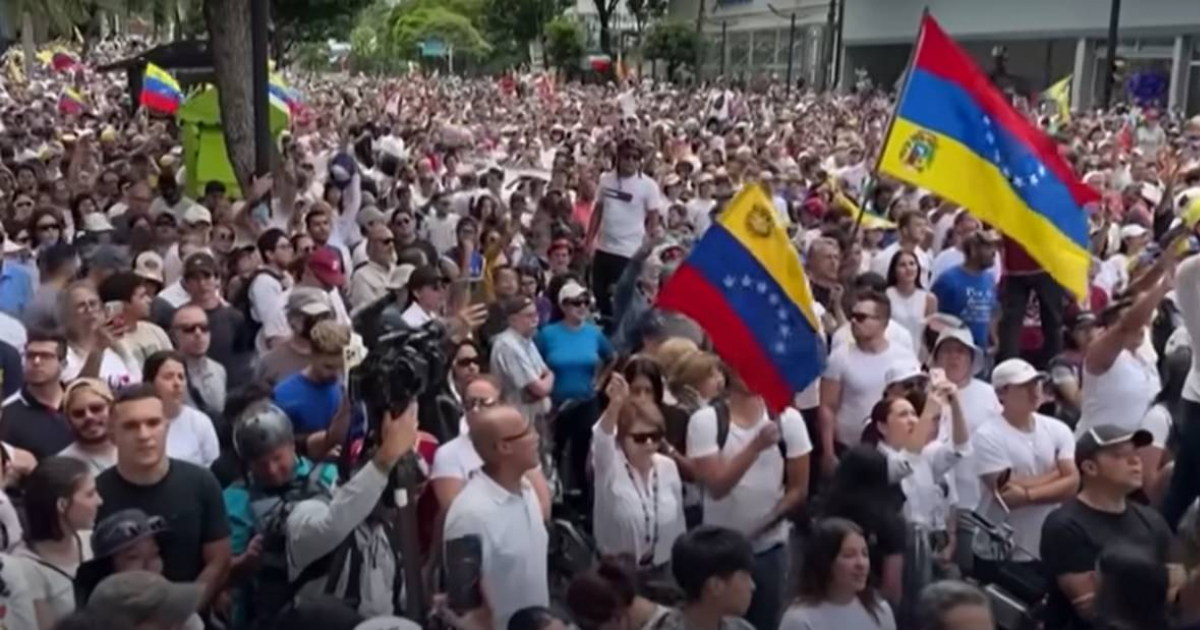The Carter Center has raised serious concerns about the legitimacy of the presidential elections held in Venezuela on July 28, stating that the elections did not meet international standards of electoral integrity, thus disqualifying them as democratic.
"The Carter Center cannot verify or corroborate the authenticity of the presidential election results declared by the National Electoral Council (CNE) of Venezuela. The failure of the electoral authority to announce results broken down by polling station constitutes a severe violation of electoral principles," the institution said in an official statement released on July 30.
Additionally, they indicate that the electoral process was conducted in an environment of restricted freedoms, affecting political actors, civil society organizations, and media outlets.
Electoral Process and Political Bias
According to the report, the electoral authority showed bias in favor of the ruling party, which disadvantaged opposition candidates. There is also criticism regarding the updating of the voter registry, highlighting numerous issues such as short deadlines and limited registration locations, both inside and outside the country. This problem resulted in low registration of new voters, especially abroad.
Regarding the parties and candidates, the Carter Center denounces that the registration of the main opposition forces was subject to the discretion of the electoral authorities, who made arbitrary decisions. The electoral campaign was also criticized for its significant imbalance in favor of the government. The report mentions the abusive use of public resources and the predominance of the ruling party's candidacy in the media, as well as the persecution and intimidation of those who supported the opposition.
The Carter Center acknowledged the massive and peaceful mobilization of Venezuelan citizens on July 28. However, it regrets that these efforts were undermined by the CNE's lack of transparency in disseminating the results.
The organization announced that it will publish a final report detailing all the findings of its mission in Venezuela.
On Sunday, Venezuelans went to the polls seeking democratic change to end more than two decades of Chavista dictatorship, but Nicolás Maduro declared himself the victor. Opposition leader María Corina Machado rejected the official results and accused the government of manipulating the elections. Machado claimed that the "newly elected president" is the candidate from the Democratic Unity Platform (PUD), Edmundo González Urrutia. She also stated that they have legal evidence to prove the frauds committed by Maduro's government to stay in power.
The Carter Center was founded in 1982 by Jimmy Carter and his wife Rosalynn. It is a non-profit organization based in Atlanta, Georgia, and works in partnership with Emory University. It is currently led by John Moores. Among its activities, it acts as an electoral observer, mediator in international crises, and promoter of health programs in Latin America and Africa. Former President Carter received the Nobel Peace Prize in 2002 for his efforts in conflict resolution, democracy development, and human rights.
Key Questions on Venezuela's Electoral Controversy
Given the questions surrounding the legitimacy of the recent elections in Venezuela, here are some key inquiries addressed to provide a better understanding of the situation.
What are the main concerns raised by the Carter Center regarding the Venezuelan elections?
The Carter Center highlighted issues such as the lack of transparency in the results announcement, restricted freedoms affecting political actors and media, and the electoral authority's bias in favor of the ruling party.
How did the Carter Center describe the environment in which the elections were held?
The Carter Center described the environment as one of restricted freedoms, which impacted political actors, civil society organizations, and media outlets.
What actions did the opposition leader María Corina Machado take following the election results?
María Corina Machado rejected the official results and accused the government of election manipulation. She claimed that Edmundo González Urrutia is the rightful president-elect and stated that they have legal evidence of fraud.
